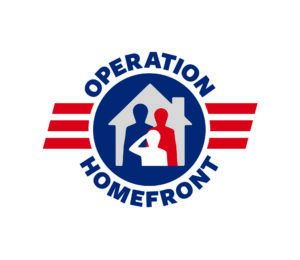You are stronger than you know and you’re able to get through it.
What does being a military caregiver mean to you?
Being a military caregiver means choosing my marriage, choosing my husband, choosing this life every single day. There are more days with challenges than there are not. It means making a concerted effort. Along with that is maintaining patience and developing relationships with other caregivers.
What advice do you wish you had when you first became a military caregiver?
To find others who can build you up—find your people, because that would have made my life so much easier. Knowing that even if a day is hard, you’ll get through. It may seem catastrophic, but that’s not a reflection on your marriage or your family. You are stronger than you know and you’re able to get through it. When you have other caregivers around you, or online, you have your group. That’s when they step in and remind you that you’re going to get through it.
How has being a military caregiver changed you?
Being a military caregiver has made me much more resilient and stronger than I ever thought I could be. I now know that I can do anything I need to in order to help my family. It’s changed me as a wife. When you get married, you say, “For better or for worse,” and I live that every day. I choose to be in my marriage and with my husband every day – a lot of wives only make that decision once. And in turn, I’m teaching my daughter that kind of strength.

My Story
When Beverly's husband Max returned from Afghanistan in 2008 with severe post traumatic stress disorder (PTSD) and a traumatic brain injury (TBI), she felt blessed to meet other caregivers who helped her navigate this new life of endless appointments, medication management, cognitive delays, depression, anxiety, anger, and confusion with encouragement, love, and laughter. A sisterhood was born from the ashes of their lives, and Beverly realized the importance of caregiver relationships and community.
As a Dole Fellow, she is committed to calling attention to the mental health needs of military caregivers and children.











